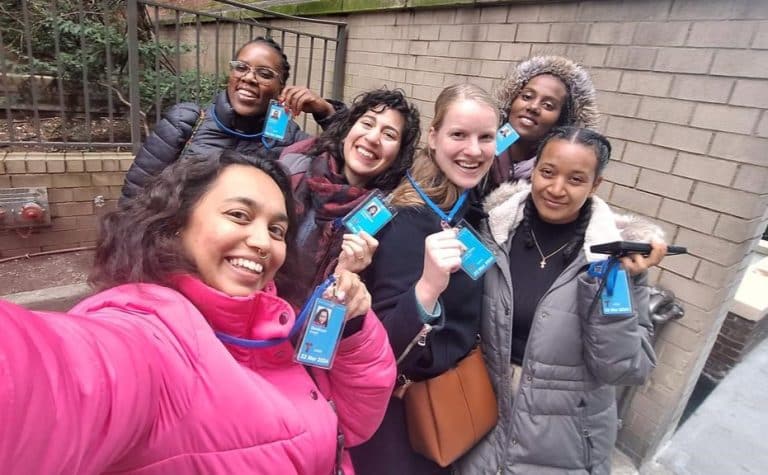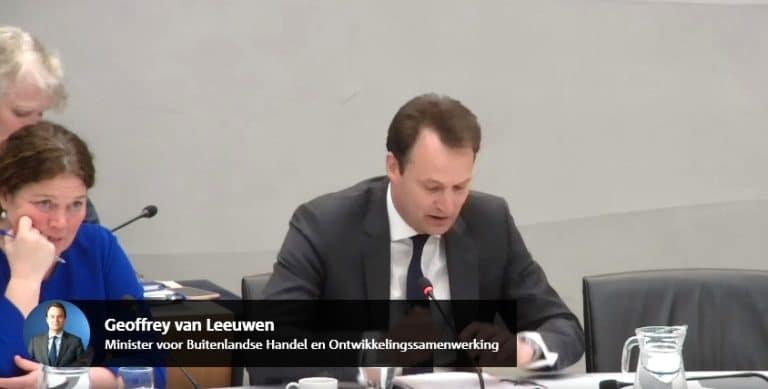Elisa Veini & Pearl Heinemans
In December 2017, the Global Forum for Universal Health Coverage (UHC) took place in Tokyo. Global health advocate Barbara Fienieg represented Wemos at the conference. We asked her about her impressions.
What kind of conference did you attend?
It was the first large Global UHC Forum since the launch of the international UHC2030 Partnership a little over a year ago. The aim was to gather politicians and policy makers from low- and high-income countries, together with experts from international organizations, civil society organizations, the private sector and academic institutions, to discuss how we can achieve the ambitious goal of UHC and realize access to health services for all before 2030, and join forces to achieve this. There are less than 5000 days to go…
What issues did you have in mind prior to the event?
Based on the dominant discourse in the last decade, we had critical questions. If the wealthier countries and institutions of the international community were to take more concrete action, would this action initially be aimed at the primary goal of UHC – i.e. achieving good-quality essential health services and commodities available for everyone in every country, without financial hazard? Or would they push for action towards the international goal of health security, i.e. preventing and tackling pandemics? Moreover, would countries and institutions like the World Bank again send out misleading messages by defining ‘coverage’ in UHC as ‘health insurance coverage’ instead of ‘universal access to health services’?
So how did the Forum’s participants define ‘coverage’?
In official statements there were hardly any misconceptions about the definition of ‘coverage’. The participants seemed to agree on the pivotal dimensions of UHC, on health being a human right as well as a crucial factor in other areas pertaining to human development, and on UHC being – in essence – an achievable target for all countries. These, and other matters, are mentioned in the joint Tokyo Declaration on Universal Health Coverage.
Were participants also unified in terms of how countries and international organizations must join forces to achieve UHC?
No, opinions on how to achieve UHC definitely differed, especially between the two leading international organizations in UHC2030, the WHO and the World Bank. But first I would like to comment on the Forum’s participants. It was clear that there were relatively more representatives from low-income countries, as compared to representatives from high-income countries. For example, the Netherlands – a high-income country with good achievements in UHC – unfortunately did not participate in the Forum to discuss this how-question. I say unfortunate, because in contrast, all countries committed to the common agenda of the Sustainable Development Goals (SDGs) including UHC.
There was a dissonance between the available evidence on how to achieve UHC on the one hand, and the kinds of solutions that we put in the spotlight at the Forum on the other hand. The WHO in particular referred to the evidence in multiple instances, stressing that the way forward on UHC and minimizing health inequalities entails … solid commitment and stewardship from the part of the government , sufficient public resources, and pooling and redistribution of resources based on the principle of solidarity. The World Bank puts a lot of emphasis on the solution of mobilizing private money for UHC, the involvement of private actors, initiatives and (technologic) innovations. Not ‘business as usual’, but ‘Business Unusual’ was the motto for the greater part of the duration of the Forum.
However plausible this solution may seem, it is not backed by evidence. Private initiatives often drive fragmentation and hamper large-scale cross-subsidization and solidarity, unless there is a strong government that can regulate the health care market. So for most low-income countries such initiatives will not speed up the process to reach UHC. It was also unfortunate that no one raised the question of how the wealthier private sector could contribute more to public resources by donating their fair share of taxes. The call for an increasingly larger role of the private sector also does not take into account the risks that come with such a role, like weakening of government stewardship and growing inequalities. We must not lose sight of such risks.
There were various kinds of participants: civil society organizations, ministers, policymakers, academics and the private sector. Could you tell a bit about how the discussion went, and your contribution to it on behalf of Wemos?
During the side events before the Forum, we organized a panel discussion together with colleagues from our informal ‘Finance for UHC Advocacy Collaborative’. We addressed the unacceptably high financial barriers and burden that affect huge numbers of individual citizens and households when they need health services. As panelists we discussed with the audience what kind of impact this has on them, and what reforms we need to tackle this issue. The fact that I was also a panel member enabled me to talk directly with the audience.
It was good to notice that other civil society organizations were enthusiastic about some of our recommendations with regard to finance for UHC, highlighting the health system’s crucial component of the professional health workforce. We based these on research findings and comparative studies as well as on civil voices from one of the focus countries in the HSA Partnership. Our infographic ‘Paying for UHC’ – which shows the importance of pooling finances for UHC – garnered much attention from other Forum participants. This way we contributed to civil society’s advocacy for specific targets in financing for UHC. In addition, we helped draft the joint civil society statement to the Forum.
Sometimes the discussions between civil society groups and other representatives and stakeholders became intense, like when we discussed the extent to which the private sector should be involved in managing the UHC process, or the importance and role of global disease-specific programs in national UHC plans.
What struck you personally?
I was impressed by the donor representatives’ and recipient countries’ level of honesty when talking about the effectiveness of Development Assistance for Health in health systems strengthening, in particular during the smaller breakout sessions. With a tormented face, a representative of the Haitian government said: ‘The Ministry of Health needs to take leadership, not foreign NGOs. In some partnerships some NGOs are even pleased with a weak Ministry of Health. They can spend hundreds of thousands to specific commodities, to their M&E system, etcetera. But nothing goes to the health workforce for instance.’
Sounds intense indeed. What else did you find eye-opening?
What is measured and published often determines the action agenda. For the first time, the WHO and World Bank jointly published a monitoring report in which they measured both dimensions of UHC – universal access to essential health services and financial protection – with comparative index scores for 183 countries! The report is nothing short of shocking: it shows that half of the global population does not yet have access to essential health services. And it shows that the differences between global regions are huge: for example, Europe’s score on the so-called ‘UHC service coverage index’ is – at 77 out of 100 – pretty high. And Sub-Saharan Africa has the lowest score: 42.
If you examine the differences in the subcategory of mother and child care within low-income countries more closely, you will find that they are more extreme. Just 17% of mothers and children in the poorest households have access to such care, as compared to 74% of the richest households.
In addition, worldwide 800 million people spend more than 10% of their household budget on health care on an annual basis, and nearly 100 million people are driven into extreme poverty due to these expenditures. Since 2000, catastrophic health expenditures have only risen, in absolute terms as well as percentage-wise. With an average of 6% per year, the largest increase occurred in Africa.
What is being done with all this data?
Let’s hope that these shocking numbers will motivate the world to take serious action to achieve UHC, and to also tackle the harrowing inequalities. That is also what many stakeholders hope for, according to a recently published commentary on the monitoring report. I would also like to pinpoint the fact that the statistics do have several gaps, and that the most recent available data are from 2014, and not later. We realize that it is an enormous challenge to retrieve up-to-date, reliable and comparable data from all countries on health systems and UHC. Nevertheless, we hope to see that the improvement of this data gets priority.
And what will Wemos do now, with this new post-Forum knowledge?
Last year we decided to embrace the goal of UHC in our advocacy work on health systems strengthening (HSS). We see universal access to health services as one of the important health determinants, regarding health as a universal human right. In particular, we want to focus more on the financing aspect and the extent to which the financing strategies and modalities contribute to reducing the unacceptable inequalities in access to health services.
Achieving equity in health requires solid and wise government action as well as deliberate use of public resources. And it requires unified and long-term strengthening support from the international community and multilateral organizations.
Together with civil society organizations, we will let our critical yet constructive voice be heard on matters relating to global and development collaboration, economic and trade policy, and policy coherence that is necessary for stronger health systems and universal access without financial hardship.




